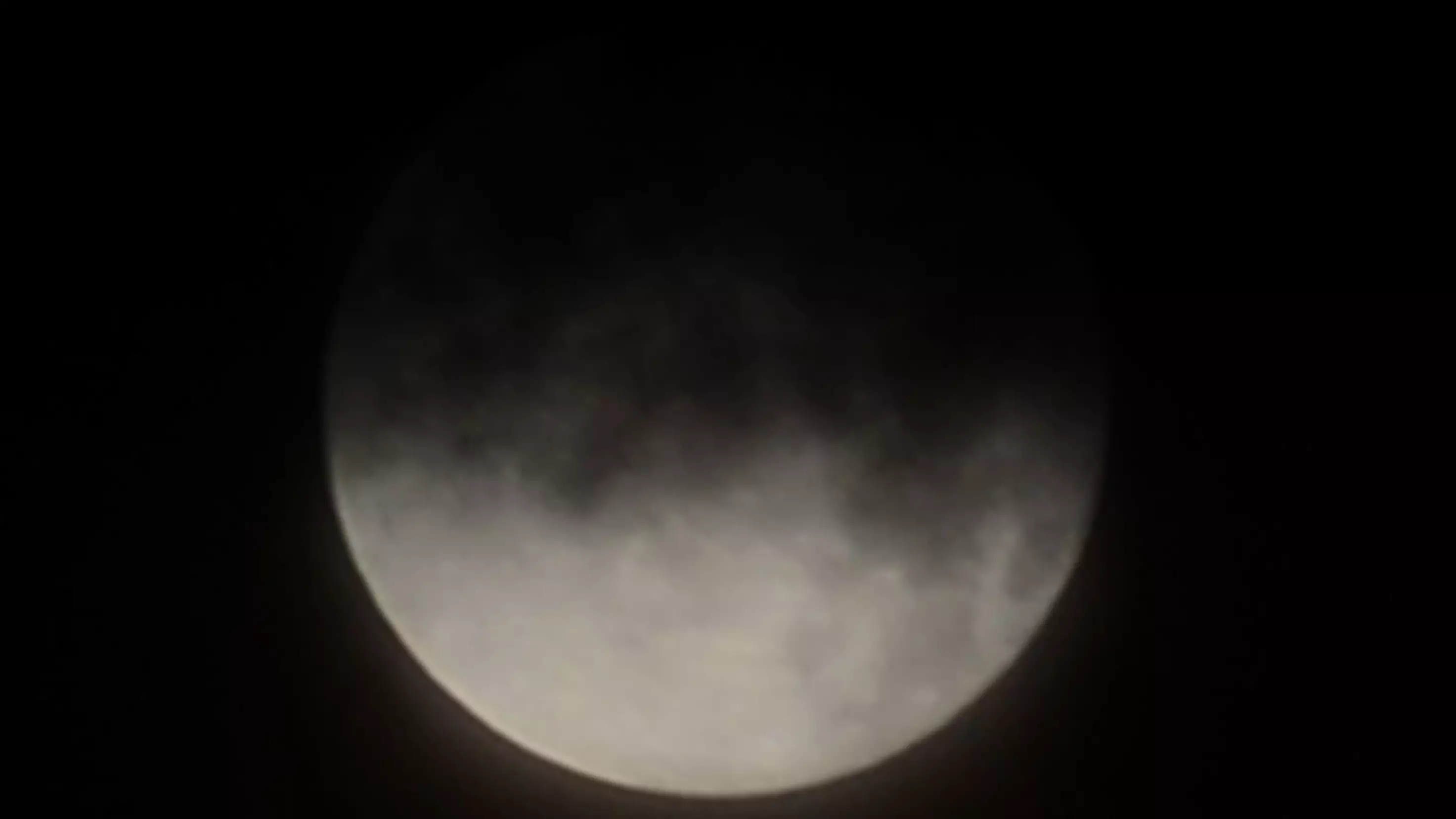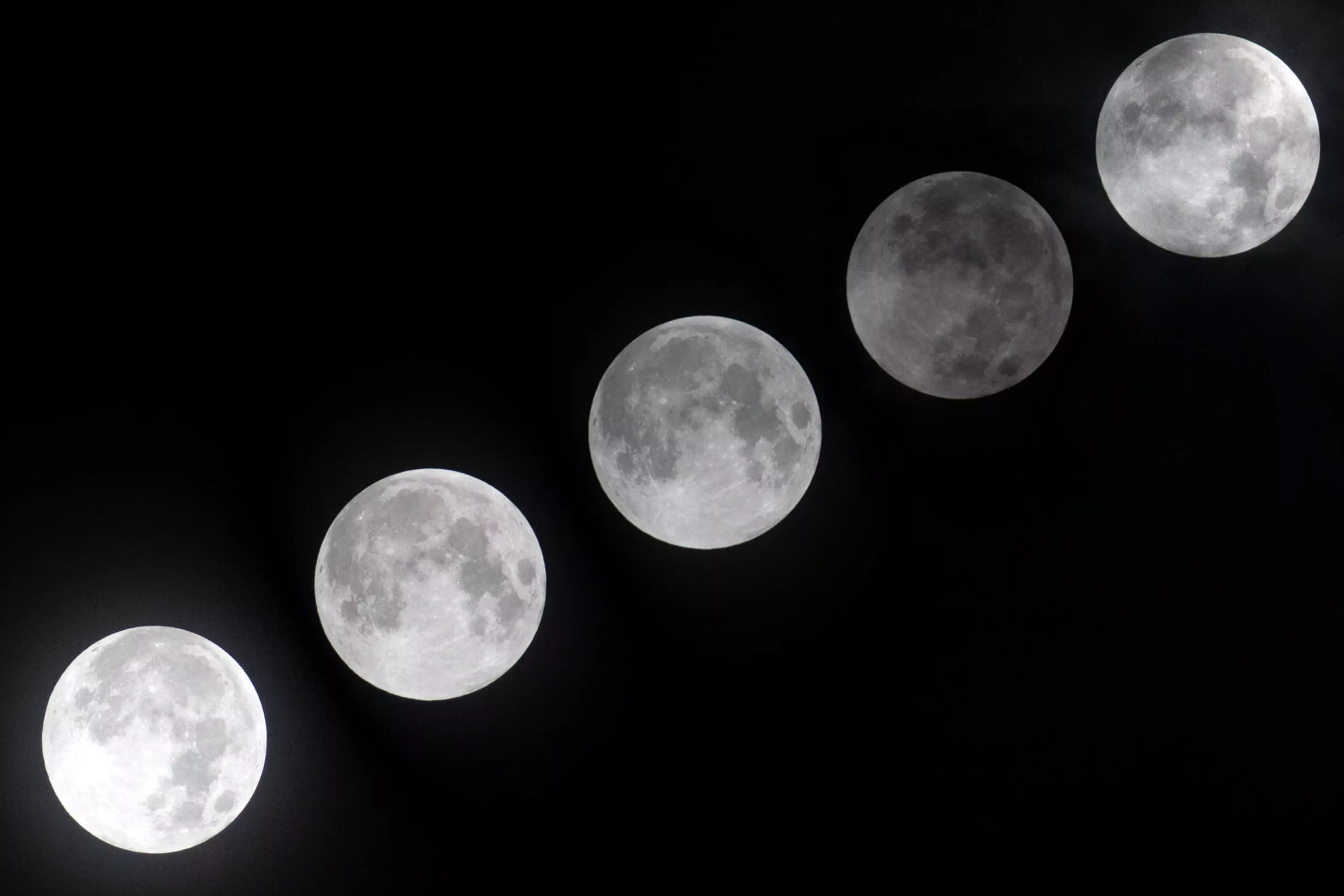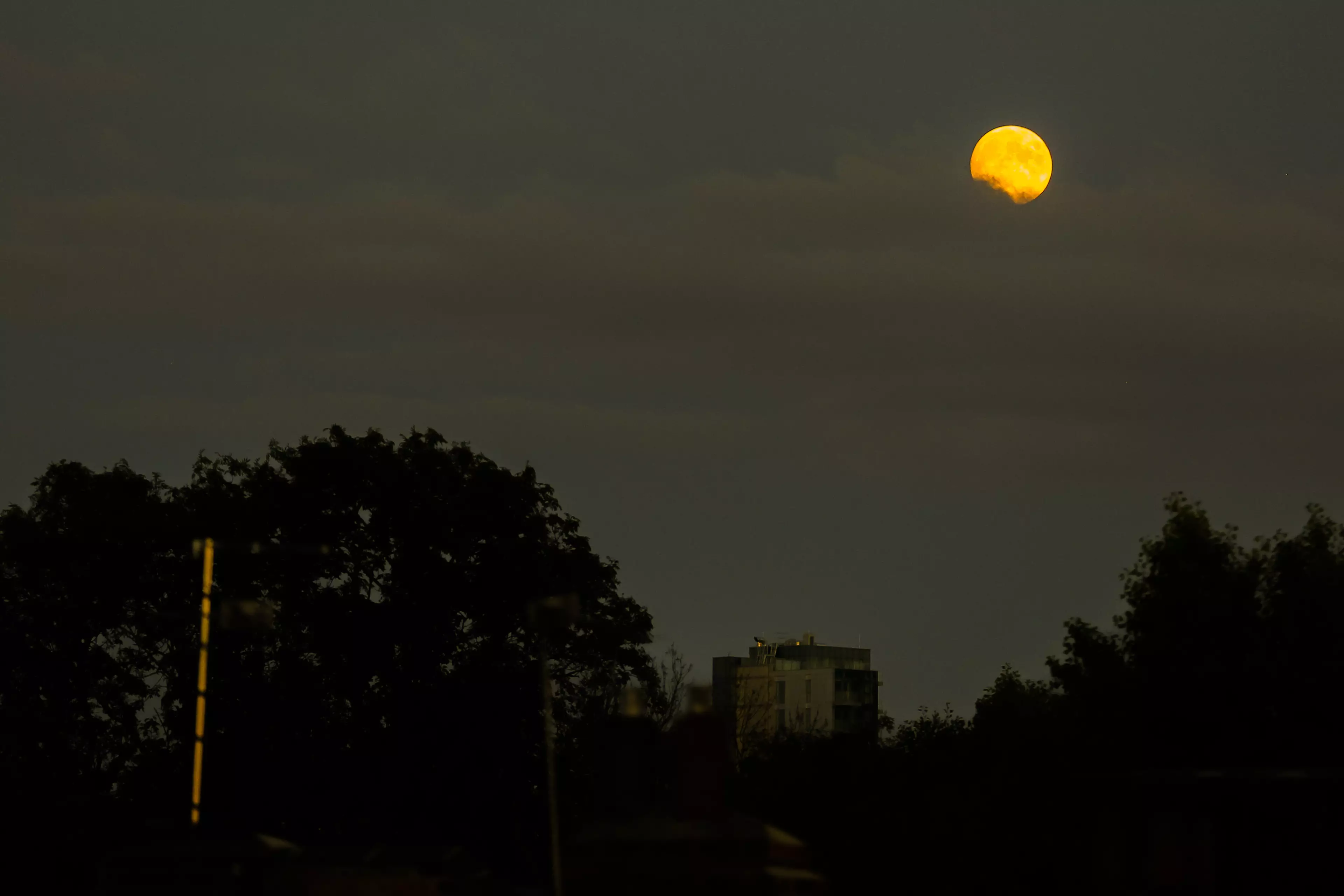
Luna-lovers in the UK might be able to catch a glimpse of the upcoming partial penumbral eclipse this weekend.
July's full moon - which is also known as a Buck Moon - will be out on the 4th and 5th and will coincide with the partial penumbral eclipse, which is the fancy term for when the moon grazes past the Earth's shadow.
Or as NASA puts it: "The Moon will be close enough to opposite the Sun that its northern edge will pass through the partial shadow of the Earth - called a partial penumbral eclipse."

The eclipse will be visible across most of North and South America - and us folks in the UK might also be able to see the subtle eclipse around sunrise.
Advert
You can use this handy tracking site to find out the best time in your area, for example, Londoners the best time is 04.41am on Sunday 5 July.
But you'll need to look carefully as this type of eclipse only partially covers the moon - meaning a small section of the moon may appear darker than the rest - so it is much less striking than your more spectacular full lunar eclipse.
NASA warns that it might be 'difficult or impossible to notice without instrumentation', so don't be too disappointed if you can't see any change.

According to the space agency, the July full moon gets its name as the time of year when the new antlers of buck deer begin to push out of their foreheads. It's also sometimes referred to as the Thunder Moon because we generally see plenty of thunderstorms in the early summer.
Advert
Each month's full moon has its own special name, with August known as the Sturegon Moon, December dubbed the Cold Moon and March the Worm Moon.
If moon news floats your boat, then you'll be pleased to learn that later this year, we'll witness a super rare Blue Moon, on Halloween of all days. Spooky.
A Blue Moon refers to the second full moon within a single calendar month and is fairly unusual - the last time it happened was 31 March 2018.
Featured Image Credit: PA